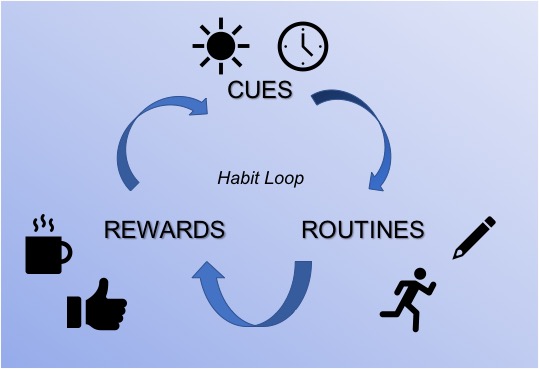Thoughts from a Physician Scientist Trainee During the COVID-19/SARS-CoV-2 Pandemic
I had a very difficult time figuring out a blog topic for this month. It has been difficult to think about topics other than COVID-19. Like a lot of you, my usual routine has dramatically changed over the last couple of weeks. Additionally, I find myself having a difficult time concentrating with emotions sometimes fluctuating from fear, anger, grief, and frustration, to hope and pride. Some of my recent days have been occupied by reading a plethora of articles, blogs, or social media posts about COVID-19, being anxious about the next time my husband or I see patients, urging people to practice social distancing and to donate PPE, and contacting family and friends to check on their physical and emotional well-being along with trying to complete some work.
I am currently a Cardiology postdoctoral fellow who has protected time to complete basic science research. I started my postdoctoral research fellowship this academic year and my hope was to immerse myself in basic science research over the next couple of years. I was hoping to have a productive lab experience and find an area that I could ultimately build my future research career. These few years of protected research time are critical to my development as a physician-scientist. From a research perspective, I have recently experienced a multitude of failures and disappointments this year (with some intermittent successes): failed experiments that have required an extensive amount of troubleshooting, rejected papers, triaged grant applications, etc. I know that I am not alone in experiencing the frequent failures that one encounters in research. My usual strategy is to be persistent, keep busy, and continue to move all research projects forward in the hopes that at least one of the projects will be fruitful which is currently difficult to do. A few weeks ago, we were informed that all non-essential experiments should stop and that no new experiments should be started. Fortunately, my lab mentor respected this request and prioritized our health and safety. However, as we reduced our wet lab work to only essential animal experiments that were already started, I could not help but feel grief for the loss of potential research milestones.
The COVID-19 pandemic has further emphasized the societal importance of investing in research endeavors and researchers longtime. There are many articles and commentaries on early career investigators being disheartened by the challenges of an academic research career along with the diminishing pool of physician scientists. The presence of the COVID-19 pandemic has further highlighted the below changes that should be made:
- Increased funding for research: The study of mechanisms of disease along with development of therapies requires extensive time and effort. Multiple valiant researchers are currently studying COVID-19/SARS-CoV-2 with the fundamental goal of saving lives. Continuous societal investment in research will hopefully lead to the prevention of pandemics and earlier development of therapies for various diseases in the future.
- Increased financial and other support for trainees and early career investigators: Supporting early career investigators through training/career development grants, travel awards, local/national/international workshops, and opportunities to present work at national/international meetings will decrease attrition from academic research careers.
- Consideration of changes to the peer review process: The COVID-19 pandemic has emphasized the importance of rapid dissemination of information. While the peer review process is important in trying to only publish scientifically valid results, the process is imperfect. Frequently, the peer review process is inefficient (which is difficult since reviewers and editors are busy). Often there are many additional experiments that are requested for. During a time where completing additional experiments is difficult, I think reviewers should consider whether the request to complete additional experiments is necessary and would change the conclusion or validity of the study. In order to more quickly disseminate findings, many investigators are now putting their publications in preprint servers. However, some investigators have reservations about putting unpublished material on preprint servers while their papers are simultaneously undergoing the peer review process.
- Improve the efficiency of translating basic science research to the bedside: There are several bureaucratic and administrative barriers that impede translating basic science findings to the bedside. Processes that balance patient safety and improve efficiency are needed.
We will continue to learn a lot about how about to improve science and medicine during this time. Stay safe and be kind!
“The views, opinions and positions expressed within this blog are those of the author(s) alone and do not represent those of the American Heart Association. The accuracy, completeness and validity of any statements made within this article are not guaranteed. We accept no liability for any errors, omissions or representations. The copyright of this content belongs to the author and any liability with regards to infringement of intellectual property rights remains with them. The Early Career Voice blog is not intended to provide medical advice or treatment. Only your healthcare provider can provide that. The American Heart Association recommends that you consult your healthcare provider regarding your personal health matters. If you think you are having a heart attack, stroke or another emergency, please call 911 immediately.”
